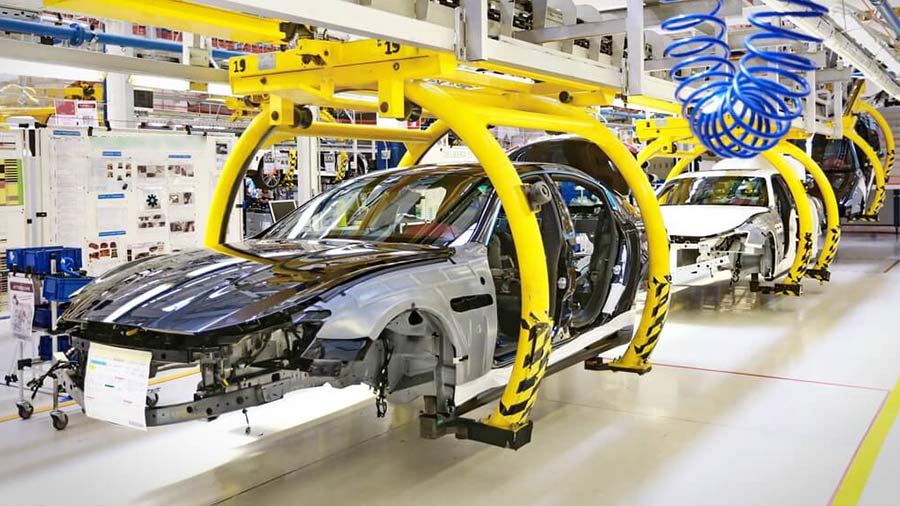The Indian automotive industry is undergoing a significant transformation as electric vehicle (EV) technology gains momentum. With the government’s push towards sustainable transportation and the rising awareness of environmental issues, EVs are becoming an integral part of the country’s mobility landscape. This transformation is not just about replacing traditional internal combustion engine (ICE) vehicles with electric alternatives but about reshaping the entire automotive ecosystem. This article explores how EV technology is revolutionizing the automotive sector in India.
The Rise of Electric Mobility in India
Electric mobility is no longer just a futuristic concept in India; it has become a reality, with major automotive manufacturers increasingly focusing on EV production. From compact electric cars to high-performance electric two-wheelers, the diversity in the EV segment has grown significantly in recent years. Indian automakers like Tata Motors, Mahindra Electric, and newcomers like Ola Electric are spearheading the movement by introducing cost-effective and technologically advanced electric models.
The shift towards EVs has been driven by several factors, including governmental policies aimed at reducing carbon emissions, rising fuel prices, and an increasing public inclination towards sustainable living. The Indian government’s Faster Adoption and Manufacture of Hybrid and Electric Vehicles (FAME) initiative has been pivotal in promoting electric mobility by providing subsidies, tax benefits, and infrastructural support to EV manufacturers and buyers alike.
Technological Innovations Driving the Change
One of the most transformative aspects of EV technology is the advancement in battery design and efficiency. Indian manufacturers are investing heavily in developing more durable, long-lasting, and fast-charging batteries. The emergence of lithium-ion and solid-state batteries is not only improving vehicle range but also reducing charging times, addressing a key concern for consumers.
Moreover, the integration of smart technology into EVs is transforming how users interact with their vehicles. Features like AI-driven diagnostics, smart charging solutions, and connected vehicle ecosystems are becoming commonplace. These advancements are making EVs not only a sustainable choice but also a technologically superior one compared to conventional vehicles.
Impact on the Automotive Manufacturing Ecosystem
The rise of EV technology is prompting a radical shift in automotive manufacturing practices. Traditional vehicle manufacturing is heavily reliant on components such as engines and transmission systems, which are largely redundant in electric vehicles. This paradigm shift is pushing manufacturers to realign their production strategies. Companies are investing in new assembly lines dedicated to electric powertrains and battery packs, often collaborating with technology partners to leverage expertise.
Moreover, the supply chain dynamics are evolving as the demand for lithium, cobalt, and other battery components rises. India is focusing on building a local supply chain to reduce dependency on imports, promoting initiatives to manufacture batteries domestically. These efforts are crucial for sustaining the growth of the EV sector in the long run.
Impact on Employment and Skills
As EV technology becomes more prevalent, the automotive workforce is experiencing a skills gap. Traditional automotive technicians and engineers require training in electric powertrains, battery management systems, and smart vehicle technologies. Consequently, vocational training centers and automotive engineering institutes are updating their curricula to prepare the next generation of automotive professionals.
This shift also presents new job opportunities in battery technology, EV maintenance, charging infrastructure management, and software development. Companies are increasingly looking for talent that can bridge the gap between conventional automotive expertise and new-age electric mobility.
Consumer Adaptation and Market Dynamics
The acceptance of EVs among Indian consumers is gradually increasing as they become more affordable and practical. Initially perceived as expensive and less reliable, modern EVs now boast competitive pricing, enhanced range, and better safety features. Increased environmental consciousness among the urban populace, along with government incentives, has significantly boosted EV sales.
Additionally, automotive companies are actively engaging with customers through awareness campaigns to educate them about the long-term benefits of owning an EV. Enhanced warranties on batteries and maintenance packages are also instilling greater confidence in potential buyers.
The Road Ahead
The transformation of the Indian automotive industry through EV technology is both promising and challenging. While EV adoption is increasing, issues related to charging infrastructure, battery recycling, and cost parity with ICE vehicles remain. Nonetheless, as technology continues to advance and infrastructure development gains pace, EVs are poised to become a mainstream choice for Indian consumers.
India’s journey towards an electric future is not just about innovation but also about collaboration between government bodies, private manufacturers, and consumers. As the country progresses, the automotive industry’s adaptation to electric technology will play a pivotal role in shaping sustainable and modern mobility solutions.

